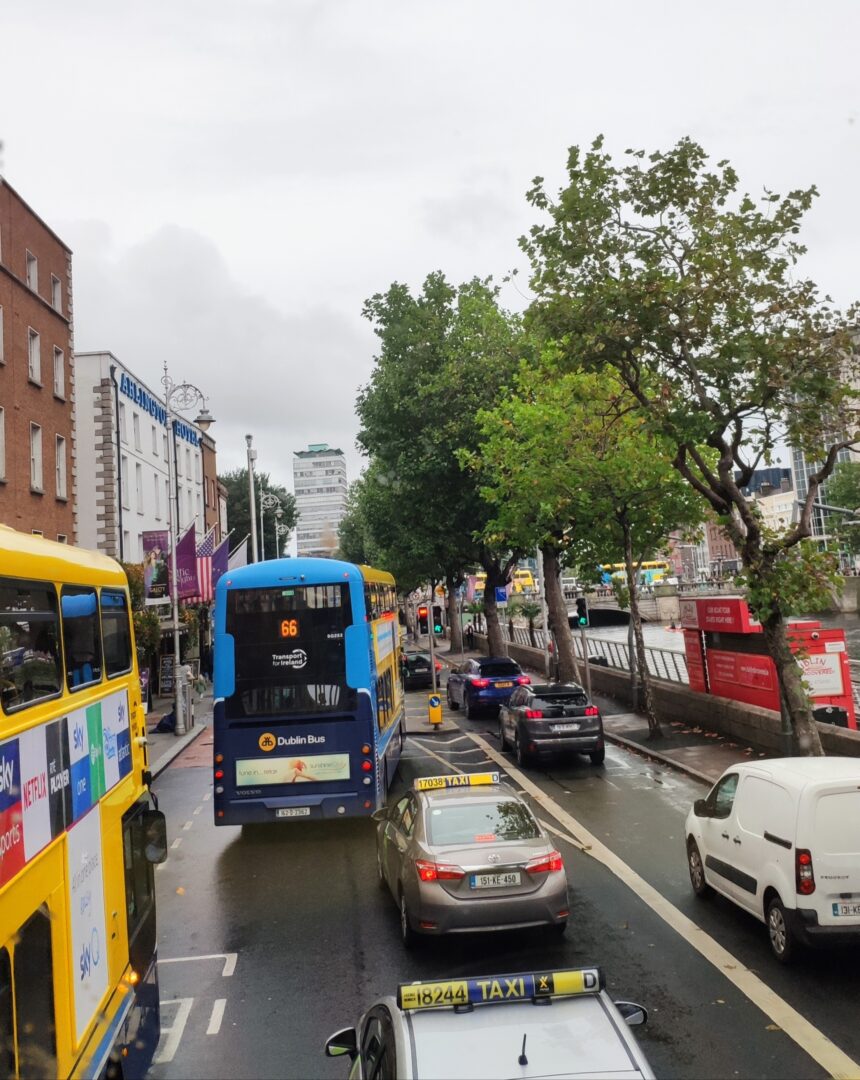As most people know by now, Budget 2020 introduced a 30% hike in carbon taxes, from €20 to €26 per tonne of Co2, applicable from October 9th. This is predicted to raise €90 million which is ‘guaranteed to be spent only on schemes working towards climate action’. Given the recent climate action strikes, the Government had an increased responsibility to address the environmental crisis in Budget 2020. However, they missed a great opportunity to introduce measures that would truly benefit the planet (and, simultaneously, their own financial reserves), and opted for the easy decision of a simple, conservative Carbon Tax increase. While the thinking and logic behind this decision is aimed at improving our currently shameful attempt to meet climate goals set in the Paris Agreement, it is more of a meagre stumble than a meaningful step in the right direction.
Ireland is the global capital of aviation, which is a heavy polluter. We are home to five of the seven largest global airline conglomerates, as well as the largest providers of jet fuel (through various subsidiaries). In 2018, 34.4 million people flew through Irish airports, which marks a 14.3% increase over 2008. The figures for 2019 are already set to top these. It can be said, then, that we are a large consumer of jet fuel (sometimes referred to as Jet A-1 or Avgas). Jet fuel is a highly harmful substance which must be sourced, extensively refined, imported and then transported to airports’ a process which is disastrous in terms of Co2 emissions. Despite this, jet kerosene used for ‘commercial or business purposes’ is currently not subject to Mineral Oil Tax (MOT) in Ireland. Moreover, it is usually not subject to VAT. The Government claim that the Carbon Tax will apply to ‘all other fuels’ by 2020, but the Department of Transport, Tourism and Sport confirmed to the College Tribune that this didn’t encompass heavy jet fuels. MOT has not seen any major reform since 2008, yet Minister Paschal Donohoe decided to ramp up Carbon Tax in Budget 2020, which ‘‘will not be easy for everyone”. New cars and second-hand imports will also be subject to an emissions-based charge. The airline industry and jet fuel process is much more polluting than the automotive one, yet it was left completely unscathed.

In 2018, it was estimated that almost one kilo-tonne of jet fuel was consumed in Ireland. Assuming (unrealistically) that both Jet A-1 and Avgas jet fuels are used in equal proportions, we get a conservative estimate of €2.022 billion spent on jet fuel that year alone. Adding a mere 3% tax, which airlines would unarguably be able to pay, would stimulate €60.67 million in additional annual taxes for the state.
Why are individuals and small businesses coerced to bear the brunt of the Government’s lacklustre attempts to tackle climate change, when larger corporations are free to pollute tax-free? The Government is acutely aware that the aviation industry should be taxed. This was demonstrated in their introduction of the short-lived Air Travel Tax back in 2009, whereby airline operators paid €3 per passenger flying from large airports. But, following a complaint to the European Commission from Ryanair over the legality of this, the tax was promptly scrapped.
Airlines will counter the idea that they should pay tax on fuel using numerous excuses, such as not being able to absorb the extra costs or that their fleets are the most technologically advanced and therefore don’t pollute quite as much as they used to. The truth is, there is no convincing argument for this. The population at large is subject to Sugar Sweetened Drinks Tax, Tobacco Tax and Alcohol Products Tax as they all have harmful effects on our health. The aviation industry, as a heavy polluter, should face similar (if not steeper) taxation for all its polluting emissions. Until the government stands up to these companies, it is the everyday person who will be out of pocket for Ireland’s climate action plans.
Alex Lohier – Deputy Editor

